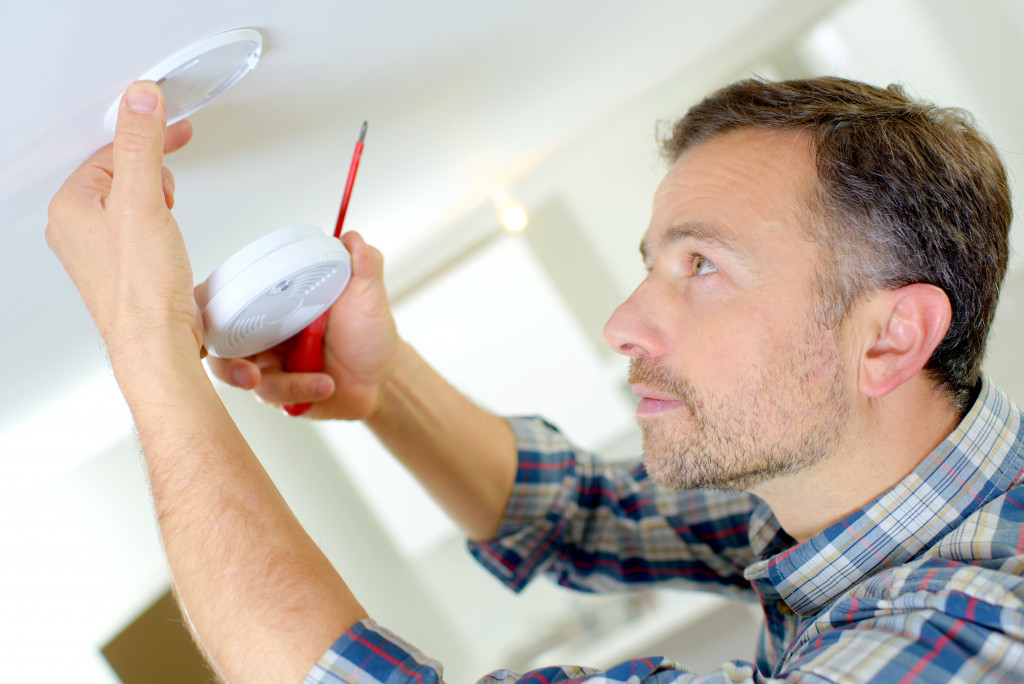- Commercial properties offer a great investment opportunity, but they also come with responsibilities.
- Safety and security are of the utmost importance when managing commercial property.
- Curb appeal is vital for attracting tenants, so keeping up with essential outdoor maintenance is crucial.
- Staying up-to-date with the latest trends and styles will add value to your asset and make it a more profitable investment.
Commercial properties are excellent investments, as they offer a steady income stream and can appreciate over time. However, a complex web of responsibilities comes with it. Keeping tabs on managing this kind of asset can be challenging. But with the proper knowledge and guidance, you can take the guesswork out of owning a commercial property and make sure that it gets handled correctly. Here are some of the critical considerations when it comes to managing your commercial property:
Safety and Security
The safety and security of your tenants should always be top of mind. Every property owner has a legal responsibility to maintain their premises in a way that guarantees safety and security. To ensure you’re up to code, it’s essential to be familiar with the basic safety regulations that apply to your property.

Fire Safety
According to 2021 National Fire Protection Association data, about 3,800 civilian deaths and 14,700 injuries occurred that year due to fires. This number could have been drastically minimized if the correct safety measures were in place.
As a commercial property owner, you are responsible for maintaining fire safety requirements as set by local and national regulations. This includes having the right fire safety equipment, like smoke detectors, a sprinkler system, and a fire damper.
But it’s not just about having the right equipment — it’s also important to be aware of the proper maintenance and testing practices. This includes regular inspections, smoke detector routine maintenance, sprinkler system upgrade, and trusted fire damper testing services.
Falls, Slips, and Trips
Slip-and-fall accidents are another one of the leading causes of injuries among adults. To prevent these kinds of accidents, you must adhere to strict safety regulations.
This includes keeping your premises free of hazardous objects or materials and ensuring that all areas are clear of potential tripping hazards. You should also make sure your floors are clean and well-maintained, as slippery surfaces can increase the risk of falls.
Weatherproofing
Weatherproofing your commercial property is essential to protect the building and its occupants. This includes ensuring that the roof, walls, windows, and other building areas are properly sealed to prevent water damage.
You should also inspect your property at least once yearly for any signs of damage or wear and tear. Because commercial properties get subjected to extensive use, fixing any problems quickly is essential to avoid more significant issues like mold and structural damage. This is especially important if your property is located in an area prone to extreme weather conditions.
Structural Integrity
Commercial properties must adhere to local building codes and safety regulations. This includes regularly inspecting the property for any issues that could compromise its structural integrity. Any problems should be addressed immediately to avoid significant issues in the future.
It’s also essential to address any necessary renovations or modifications that are needed. This could include changing the building’s layout, replacing walls or windows, and ensuring that all the systems are in optimal working order.
Curb Appeal
Aside from the safety and security of your property, it’s also essential to maintain its aesthetic appeal. Curb appeal is vital for attracting tenants. So, make sure to keep up with basic outdoor maintenance, like mowing the lawn, trimming shrubs and trees, and keeping walkways clear of debris. It would be best if you also considered making improvements to the property’s exterior. This could include painting, installing new windows, or making changes to the landscape.
Although you don’t need to maintain a perfect picture of your property, you should ensure that it’s well-maintained and looks presentable. This way, it will be more attractive to potential tenants.
Renovations
Of course, trends and styles change over time, and it’s essential to keep up with these changes. If your property is beginning to feel outdated, you should consider renovations or remodeling projects.
Some of the most popular renovation ideas include changing wall colors and fixtures, updating flooring, and upgrading outdated appliances and furniture. Not only will these updates help your property stand out, but they can also add value to the asset and make it a more profitable investment.
Managing commercial property requires dedication and attention to detail, but with the right attitude and strategy in place, it can be an extremely rewarding experience, both financially and professionally. By considering these crucial considerations when managing your commercial property, you can ensure that your business is running smoothly and profitably for years to come.
